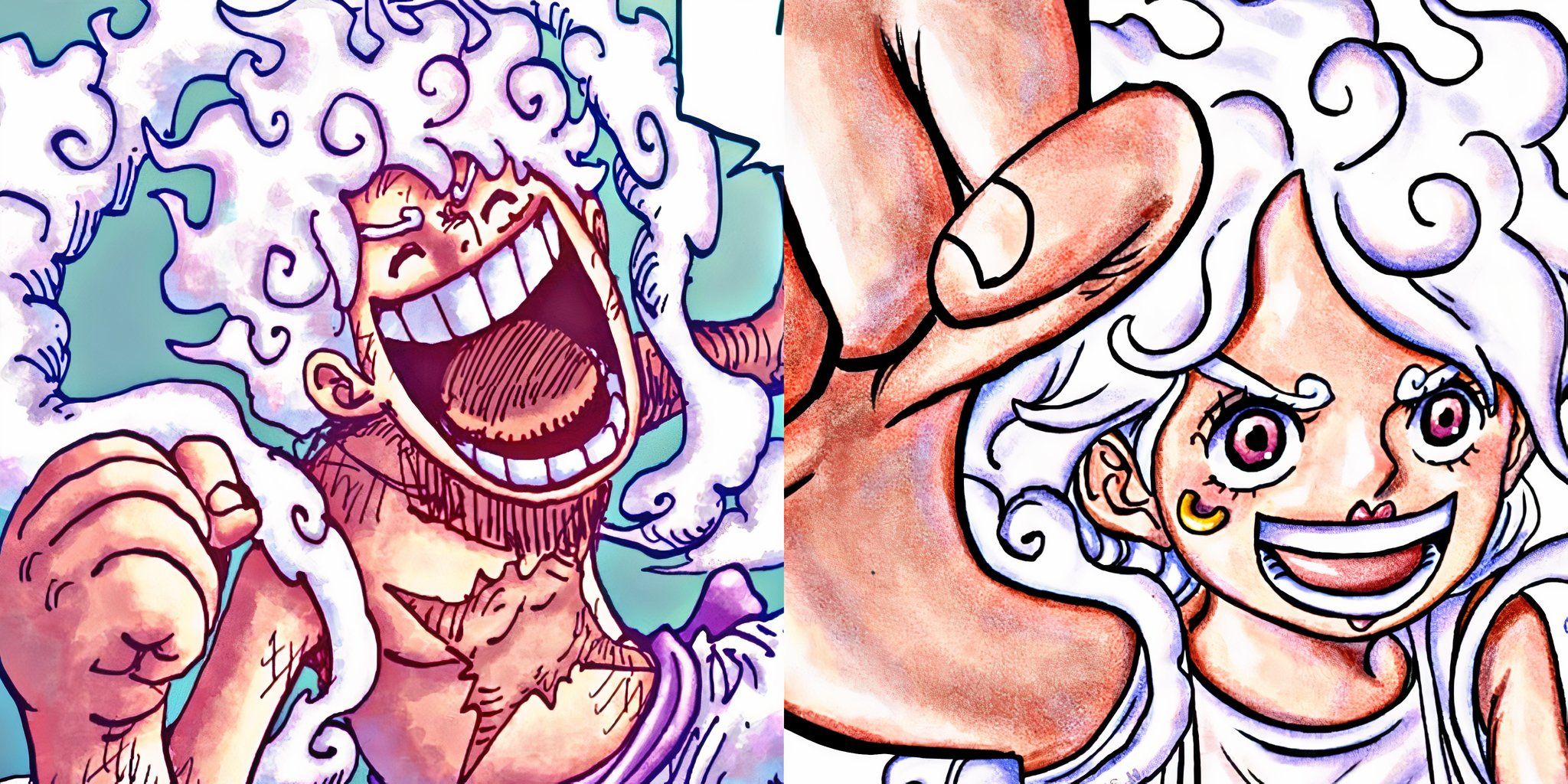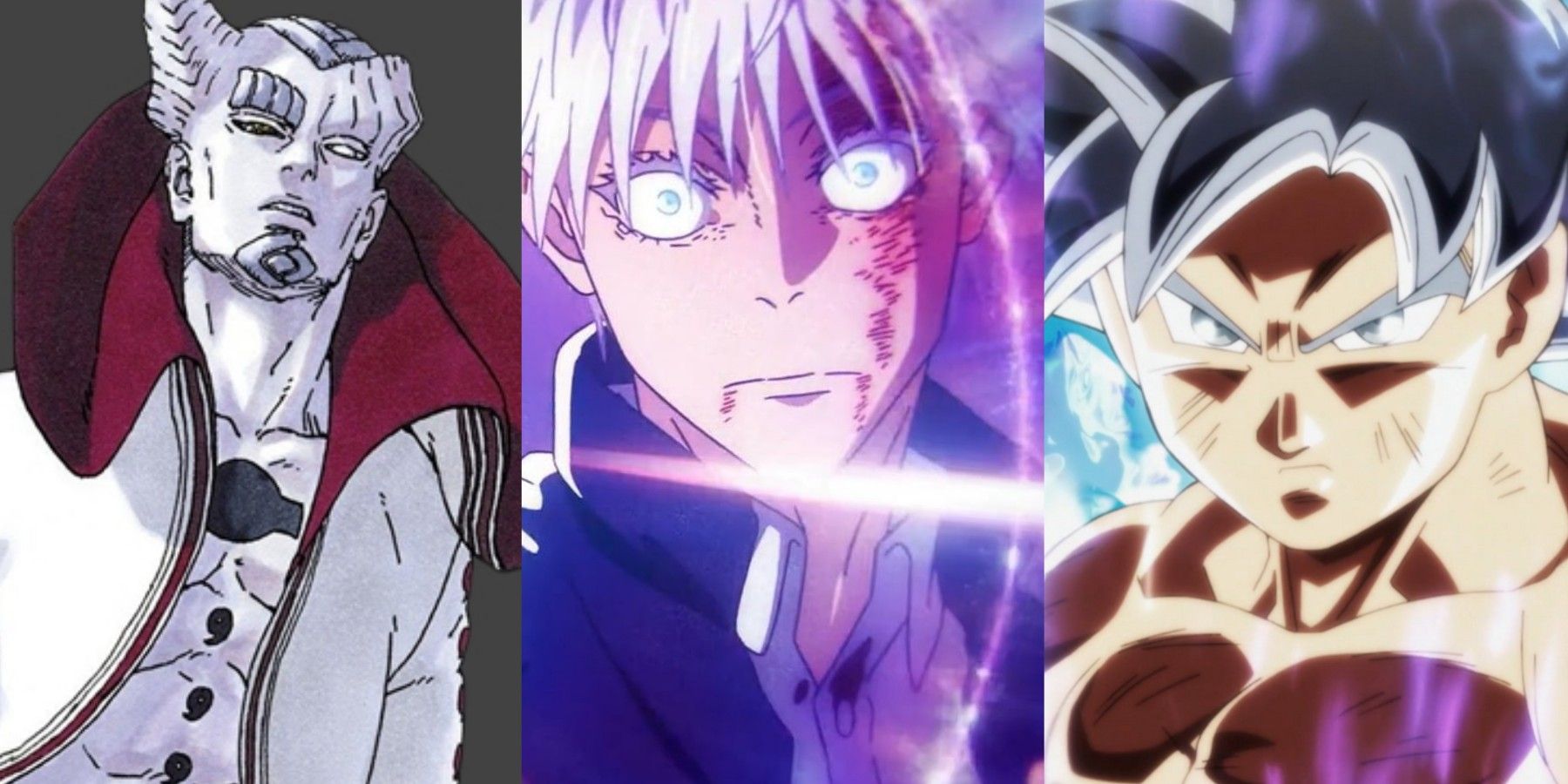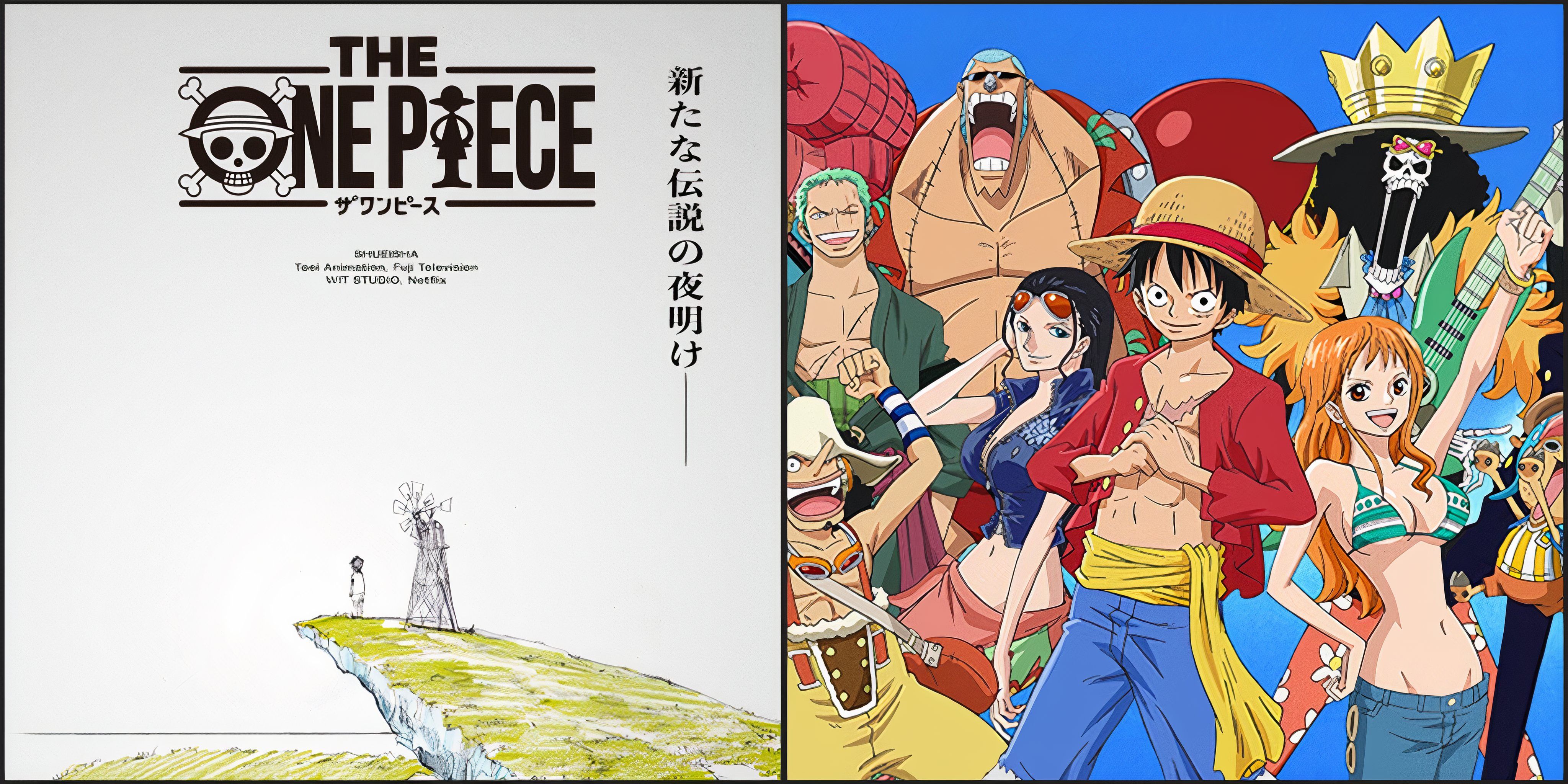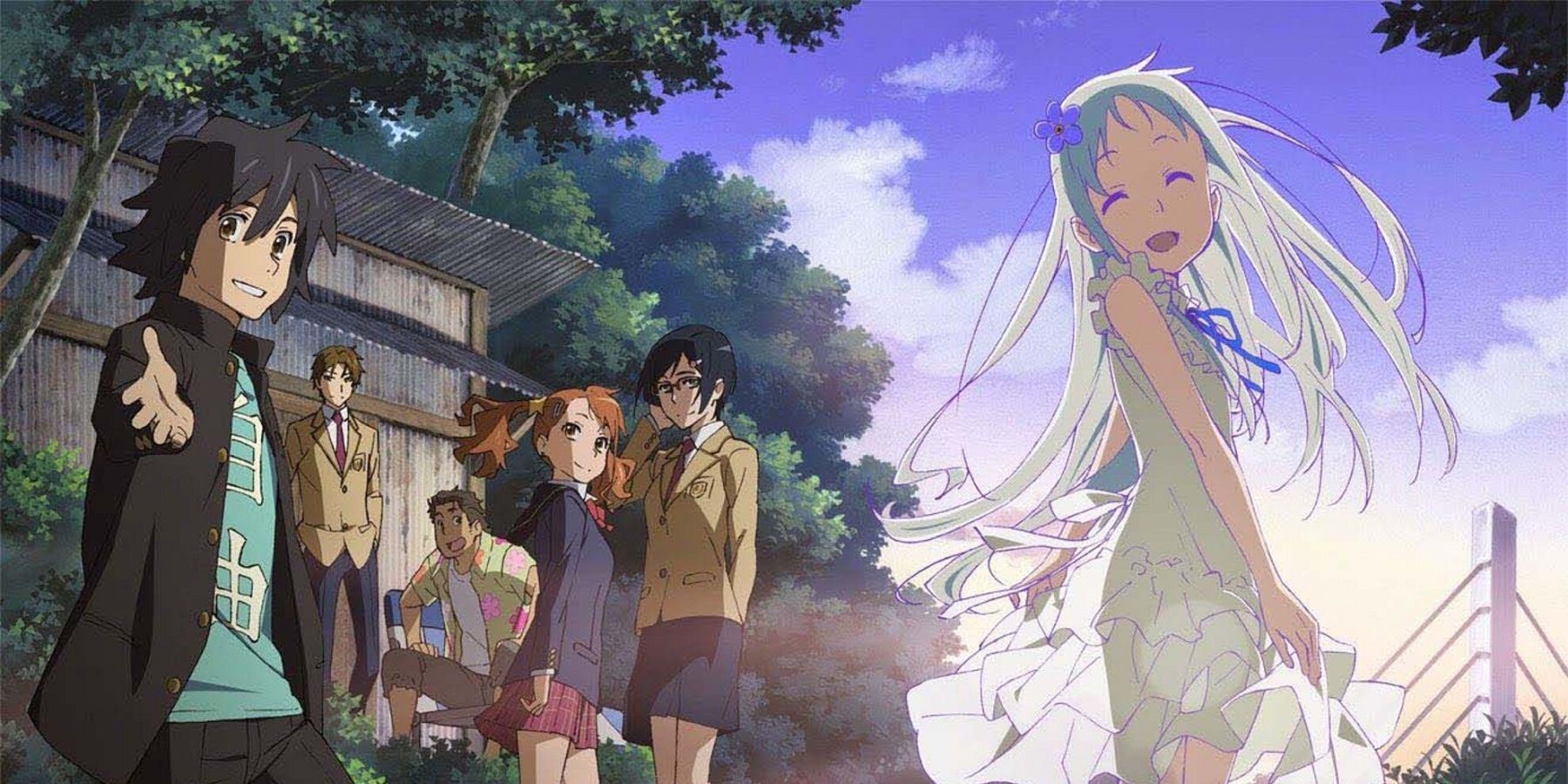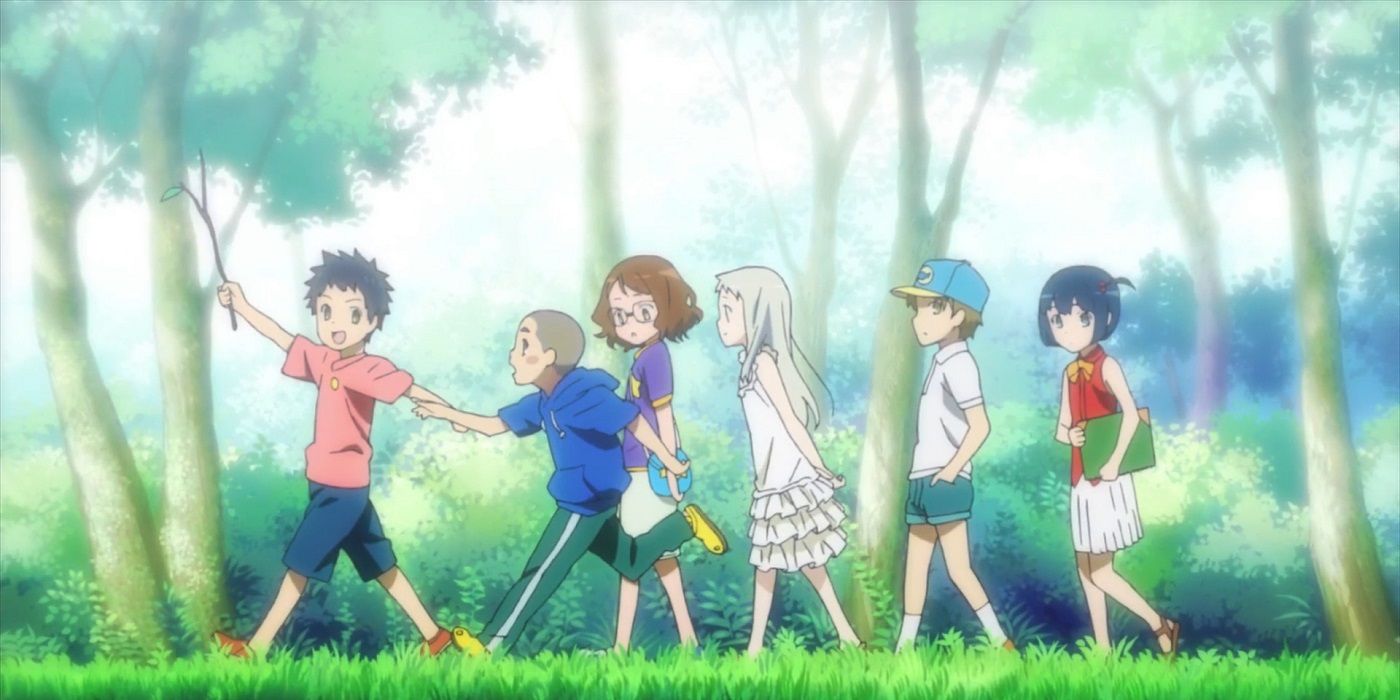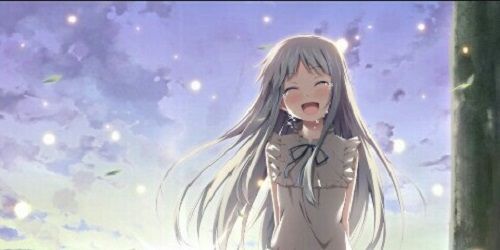When looking for a show to fill the void left by something like Clannad, Anohana: The Flower We Saw That Day would make a lot of people's recommendations lists. And Anohana's writer, Mari Okada, is one of those writers able to take things that everyone universally understands, but many aren't able to articulate quite as coherently so that understanding gets across to an audience.
Both adolescence and grief and trauma are concepts that, given their complexity and the feelings they can engender, can be difficult to explore in a writing headspace. But in the anime and manga she writes, and even at times directs, Okada is someone who can strike that balance between how difficult growing up can be in almost any society, from the weight of expectations to having to learn to handle more complex, possibly even daunting emotions, to this freeing sense of new possibilities for the future opening up if the one growing up is brave enough to seize them.
Grieving Young
The story of Anohana, as aforementioned, centers around a group of teenagers who are haunted by the ghost of their childhood friend. Well, metaphorically speaking. Only one of them, Jintan, can actually see her ghost, and the rest of their friends, who have all grow apart from both him and each other for the most part, think he's crazy at best, and at worst deliberately trying to jab at and reopen old wounds, while they're all just trying to do their best in their own ways to keep moving forward with this thing called growing up, while at the same time having unresolved feelings about each other, made worse by their now being old enough to better understand those feelings as far as being a teenager is concerned.
Menma, meanwhile, can't understand why her friends aren't friends anymore. She died not just when they were all still close, but also when they were all still children. Not only is the trauma experienced young, but the trauma comes from a death that shouldn't happen, that is to say, the death of a child. And not only was her death in and of itself difficult, but each one of her friends had associated bad feelings with that same afternoon. Jintan was embarrassed, Anaru brought up his liking her because she secretly harbored a crush on him, another boy, Yukiatsu, harbored a secret crush on Menma, Tsuruko harbored a crush on Yukiatsu, and Poppo was the one who actually saw Menma fall and die.
Jintan grew up regretting that he hadn't been honest with Menma. Yukiatsu's naturally grown up resenting Jintan because he realized that Menma had feelings for Jintan and not him. Anaru and Tsuruko both had to grow up not just with grieving their friend but also for that tiny, horrible but very human part of them that was "glad" that Menma was "out of the way" and they no longer had to "compete" with her for their respective crushes' affections. And Poppo meanwhile skipped high school for the same reason Jintan seems to be, only Jintan shuts himself in playing video games all day while Poppo traveled around the world as though trying to escape the fact that he watched his friend die without doing anything to save her, even if logically it wouldn't have been possible for him to have done anything anyway.
Setting The Trauma Free
All of them not only grieve Menma, but they also each feel responsible in their own way for her death, even if it was only an accident. Worse still, their efforts to help Menma's ghost "cross over" initially come begrudgingly, the things that drove them apart keeping them from truly coming back together. That is until their initial failure help her gets them all to truly open up to each other for the first time in a long time, about these feelings about losing Menma and each other that they've bottled up all these years. It's a scene that dissolves rawly and beautifully into youths finally crying and truly grieving together for the first time over a shared loss suffered too young for all of them.
It's rivaled only by the show's climax, when Menma's ghost starts to disappear, and it turns into a desperate game of hide-and-seek to find her again. Just before she disappears forever however, suddenly all of them can see her, not just Jintan. They found the personal notes she wrote to each of them, given the gift of being able to understand how she truly felt about them all this time too. It forces them to confront the petty things that drove them all apart, and how Menma and the things she valued being truly important to them all, while it can't make them like they used to be, can finally help them to lay aside their guilt, regret, and resentment in favor of forgiveness and truly helping each other to move on. This is very poignantly illustrated in them all not only crying together again, each of them crying out, "I love you!" to Menma, and then, all together shouting, "Menma, we found you!" That just thinking about those words can bring a tear to the eye says something about the strength of the story that led up to them.
Okada herself allegedly has had to handle her own trauma in the form of the difficult relationship with her own mother. Learning about it is poignant in and of itself, and more so when watching a film like Maquia: When The Promised Flower Blooms, whose plot and themes center heavily around motherhood. Grief and trauma and adolescence are all things she continues to explore, from slice-of-lifes like O Maidens In Your Savage Season! and Anohana, to mech anime like Iron Blooded Orphans. But Anohana is her work with these things in their purest form, resonating with these very real, raw, human emotions that, like all the best stories, provides a tool for growth as well as just a good, well-told story.

